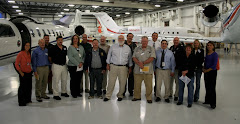David Gergen, editor-at-large of "U.S. News & World Report," engages Frank Wilson, a neurologist and author of "The Hand: How Its Use Shapes the Brain, Language, and Human Culture."
DAVID GERGEN: Dr. Wilson, as a neurologist, how did you become so fascinated with the human hand?
FRANK R. WILSON, Author, "The Hand:" Well, it actually started some years ago. At that time my daughter was a sort of an up-start young pianist. She was getting ready for a recital, and she was playing a piece that all 12-year-old girls like to play; it's called "The Fantasy Impromptu." It's a Chopin piece. And I had never really watched her hands. And it struck me suddenly that there was something very special about what was happening in front of my eyes. I was looking at a neurologic phenomenon, a very human phenomenon, and I didn't really understand it. So I asked myself: What is it that makes her fingers go so fast? In other words, what is it about the brain that explains how the hands work? And it was after that, that the question sort of turned upside down, and it became the question about what do the hands have to do with how the brain works, or how the brain is organized, which is what my book is about.
DAVID GERGEN: So tell us -- how does the hand influence how the brain works?
FRANK R. WILSON: Well, it's a long story - I mean, it's several million years long. What I spent time working on was the question of the actual distinctive organization of the brain. And to put that in a nutshell, the hand, the human hand, starting about three million years ago, began to change very subtly. Everybody knows that our ancestors came down from the trees. As Darwin observed, animals that were walking around on four limbs could stand up, and the hands then became free to do other things. And so we had the opportunity; we had the opportunity beginning at that time to do things with the hands. Now, of course, monkeys, chimpanzees, and guerrillas have hands very like ours but not exactly like ours. And there were some subtle anatomic changes in the hand that make it work in a way that really changed the survival prospects of our ancestors once they got on the ground.
DAVID GERGEN: And that began to interact with the brain; the hand began changing the brain, in effect?
FRANK R. WILSON: Well, the hand and the brain really grew up together over some millions of years, and the result of that was that an enormous part of the control apparatus of the human brain is now really specialized for skilled use of the hands. It's a big story, way too big a story for us to go into in detail here, but it's really the crux of what then becomes an issue, I think, in human development, because you can compress the anthropology story in such a way that you can ask the question about us as individual human beings. What is it about the hand that accounts for the way we as individuals develop? And that's another very interesting story.
DAVID GERGEN: Well, I'd like to pursue that because one of the main themes of your book is that the hand traditionally has been very important to human education of an individual and increasingly you believe in modern education, we're ignoring the importance of manual dexterity and manual learning.
FRANK R. WILSON: There has been a prejudice that manual labor is somehow demeaning. And, in fact, British surgeons, for example, were called "Mister," because to be a real physician, a real doctor, why you actually were doing something with your brain, rather than your hands -- and what's been missing in this story is that particularly in early childhood, the experience that begins around the age of one, when a child begins to be able to control individual finger movements, the child gets up off its bottom, starts walking around and exploring the world, and actually begins using words for the first time -- what we really think of as the beginning of human thought and human individually -- is really tied up with these chronologically very, very tightly controlled events that all children go through. Now once children get into school this sort of learning machine that was given to us by biology is sort of preempted by a culture that says, well, we would like our sons and daughters to go to Harvard, and we would like them to be computer scientists and we would like them to be aeronautical engineers, so, well, we'll now take that over, and we will fill the child with the information that the child needs. Unfortunately that does violence psychologically to the child, and it also, unfortunately, divorces that child from the physical world at a time when that child has to know what the world really is about. It's a world that you can't really quite get through the computer. You really get it better outside throwing snow balls and mud balls and playing with cats and animals and toys and making things up.
DAVID GERGEN: And actually working with those kind of things and working with your hands - it actually you more or teaches you other things that you don't learn if it's all cognitive.
FRANK R. WILSON: Well, you can't really separate what's in the mind from what's in the body. Knowledge really is the whole behavior of the whole organism. And the mistake that we've made - I think -- isn't focusing on education. It's thinking that you can educate the mind by itself.
DAVID GERGEN: You've noticed that among some engineers-new engineers that there may be something missing in their education earlier, which distinguishes them from older engineers.
FRANK R. WILSON: Yes. Earlier we discussed this, and this is actually an interesting story, and this will prove that I'm not against computers or the Internet. I put my E-mail address on the dust jacket of the book, hoping that people would communicate with me. The publisher was terrified, that this was an awful mistake, but I said, no, I want to hear what people have to say. The very first message that I got after the book was published was from a man who owns a - he's a car mechanic - and he owns a shop in southern California. And we've had very many conversations, but what it really came down to was that he became concerned as a man who hires high school students as apprentices to work in his shop, that these kids were not getting it; he could not teach them; there was something that they just didn't seem to be able to understand. And he had a phone call from the vice president of an engineering firm, and as he tells me this story, the vice president said, you know, we're having trouble with our younger engineers, they're very brilliant; they're very well educated; but when we give them a problem that has to do with spatial relations, and designing an object, let's say a piece that goes into a space capsule, a module of some kind, and there's something that's three-dimensional about it that has to be fixed, they just don't seem to understand it, and so we don't hire any engineers anymore - no matter where they come from -- unless they've had working experience as mechanics. So we're coming to the edge of, I think, a discovery about - about education, which is that you can't really skip this experience. It's important for children to have hands-on experience when they're young.
DAVID GERGEN: So parents ought to allow their children to have that - satisfy their curiosity working with their hands, working inside an automobile, working with other things like that?
FRANK R. WILSON: It couldn't be more important. And, you know, music lessons or playing with animals - I mean there are any number of experiences that kids ought to have, but you can't rush that. Biology took a long time to get us this gift that we have, this marriage of hand and mind, and it's a mistake, I think.
DAVID GERGEN: Dr. Wilson, let me ask you one other question because you write about this so enthusiastically, and that is the degree of emotional satisfaction that so many people have working with their hands - painters, sculptors, people who climb mountains, and others.
FRANK R. WILSON: That was really what got me started. I was interested in the emotional quality of musicians' work, and I thought, well, maybe it's just because they're professional emoters; they're supposed to be emotional. But I wondered then if it might be true of others. And I met a young man who was a puppeteer in Dusseldorf and he had spent his whole life working with puppets, and his emotional feelings - the passion and really the inventiveness that he brought to his work I found again and again and again in people who had decided that they really wanted to be in charge of what they were doing, and it was really tied up with the hands. I've noticed now since I started working on the book about what happens to people with recreational lives. And there was a piece in the New York Times a few months back about the explosion of woodworking, and that it's now a multi-billion dollar business; now, all these guys who are sitting in offices, working over financial statements and spreadsheets and so forth, they can't wait to get out of there and build a cabinet. And there's a reason for that. It's much more fulfilling for people. They have some control over the outcome. They have some independence; they get some satisfaction. They see results, and they have to think problems through themselves.
DAVID GERGEN: Dr. Frank Wilson, thank you.
FRANK R. WILSON: David, thank you; I really appreciate being here.








